Thursday marked the second anniversary of the kidnapping of nearly 300 schoolgirls in Chibok, Nigeria, by the Islamic terrorist group, Boko Haram.
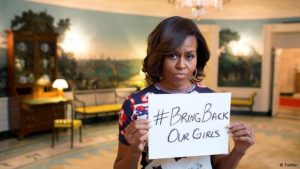 This kidnapping incited universal outrage. Never mind that this outrage manifested in little more than people – most notably celebrities like Rihanna, Madonna, and Michelle Obama – posting #BringBackOurGirls on their social media pages.
This kidnapping incited universal outrage. Never mind that this outrage manifested in little more than people – most notably celebrities like Rihanna, Madonna, and Michelle Obama – posting #BringBackOurGirls on their social media pages.
Yet you’d be hard-pressed to find any mention of these girls on those pages since then. Which is why it’s hardly surprising that this tragic anniversary passed for so many as if “the Chibok girls” never entered public consciousness.
Mind you, Boko Haram kidnapped many more schoolchildren (i.e. girls and boys) with nary a mention in mainstream or social media.
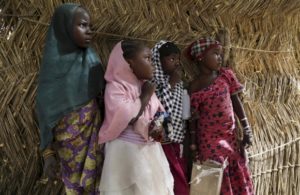 In fact, having killed 20,000 and displaced 2.8 million across five regional countries, its unrelenting reign of terror is now preventing over 1 million Nigerian children from going to school:
In fact, having killed 20,000 and displaced 2.8 million across five regional countries, its unrelenting reign of terror is now preventing over 1 million Nigerian children from going to school:
On the one hand, parents are too afraid Boko Haram might kidnap them; on the other hand, the Nigerian military has commandeered their schools to repurpose for the fight against these Islamic terrorists. Unfortunately, the latter is resulting in more illiterate, traumatized kids now lying in wait to continue Nigeria’s never-ending conflicts for another generation….
Meanwhile, that this anniversary garnered so little media coverage reflects not only the fecklessness of this fight, but also the disinterest in the schoolgirls’ plight.
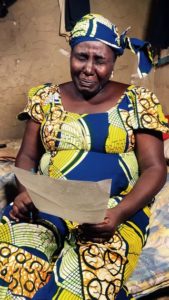 Indeed, it speaks volumes that the media marked it primarily by sharing the forlorn pleas of Chibok mothers – who are still wailing and wondering about the fate of their daughters. Sadly, we now know they were doomed from the night they were kidnapped:
Indeed, it speaks volumes that the media marked it primarily by sharing the forlorn pleas of Chibok mothers – who are still wailing and wondering about the fate of their daughters. Sadly, we now know they were doomed from the night they were kidnapped:
Boko Haram is forcing and duping young women into suicide missions for refusing to ‘marry’ members of the West African Islamist militant group, according to reports…
‘It is unbelievable that two years after the worldwide solidarity movement for the Chibok girls, Unicef is still struggling to collect less that 12 per cent of the funding we need to provide emergency assistance to 1.3 million children displaced by Boko Haram,’ [said Laurent Duvillier, Unicef spokesperson for West and Central Africa].
(London Independent, April 14, 2016)
I waited to mark this second anniversary to see if those in the vanguard of the #BringBackOurGirls campaign would belie my cynicism about the fleeting nature of their viral outrage. They did not.
In fact, there is nothing new about the “unbelievable” lack of interest that Unicef spokesman is complaining about today. For lack of interest was already such that I marked the first anniversary – in “Remembering the Chibok Girls (and Boys),” April 17, 2015 – as follows.
___________________
Here is how I pooh-poohed the self-flattering, self-serving and self-delusional hashtag posts it generated:
Remember when the “#StopKony2012” viral campaign made expressing concern for the ‘invisible children’ the LRA kidnapped an article of our shared humanity?…
Yet Kony and his child soldiers remain as menacing today as they were back then.
Therefore, I hope folks bear this in mind; that is, if they aren’t too busy tweeting about the outrage du jour to wonder about the real-world impact of the ‘#BringBackOurGirls2014’ viral campaign.
(“Alas, Kidnapping Schoolgirls Is the Least of African Crimes against Humanity,” The iPINIONS Journal, May 7, 2014)
I shan’t bore you with the sectarian and geopolitical reasons Nigerian authorities have failed to rescue them. To say nothing of the dispiriting fact that Boko Haram terrorists have kidnapped hundreds more since then; or that they have kidnapped almost as many boys.
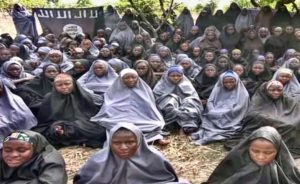 The point now is that these rampaging Islamic terrorists are brazenly defying all boots-on-the-ground efforts to stop them, making a mockery of patently feckless protests on social-media.
The point now is that these rampaging Islamic terrorists are brazenly defying all boots-on-the-ground efforts to stop them, making a mockery of patently feckless protests on social-media.
I am often accused of being too cynical. But my accusers can never cite a single case where my cynicism proved unwarranted.
Moreover, as I found with my friends, you’d be hard-pressed to find a single person, who tweeted #BringBackOurGirls, who can show that her concern for them extended beyond that tweet.
___________________
There’s clearly no vindication in being so right about hashtag protests in this case. It’s just that I was informed enough to know they would do nothing to help.
Indeed, I am all too mindful that other terrorist groups (like Al Shabaab and Lords Resistance Army) are terrorizing just as many innocent children across Africa. Not to mention the millions of others who seem fated to lives of chronic strife in war-plagued countries like Democratic Republic of Congo and South Sudan.
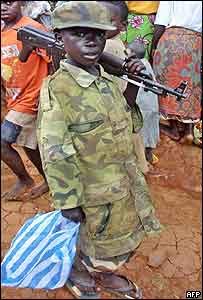 I bemoaned the latter most recently in “Millions in South Sudan Eating Leaves and Grass … Like Cows,” October 29, 2015; and the former years ago in “Genocide in DR Congo: Rwanda with a Vengeance,” April 6, 2006, which includes this ominous observation – complete with the plea to no avail that has informed my cynicism ever since:
I bemoaned the latter most recently in “Millions in South Sudan Eating Leaves and Grass … Like Cows,” October 29, 2015; and the former years ago in “Genocide in DR Congo: Rwanda with a Vengeance,” April 6, 2006, which includes this ominous observation – complete with the plea to no avail that has informed my cynicism ever since:
In the fertile killing fields of the DR Congo even children must kill or be killed…
I appreciate our despairing powerlessness to help these Congolese victims directly. But we can flood our governments with cries of concern and demand action from them in the name of our shared humanity. Therefore, I urge you to contact your government officials and beg them to give this festering human catastrophe the attention it warrants!
According to the NGO International Rescue Committee (at rescue.org), 5.4 million people have died since 1998. This explains why, in its edition on December 12, 2012, the New York Times described the conflict in the DR Congo as “The World’s Worst War.” Government and rebel forces signed a truce in mid-2013, but vast areas are still veritable war zones.
The point is that media reports or mentions about the killing of so many children in the DR Congo were few and far between. Alas, civil conflicts, including “rape as a weapon of war,” have become so commonplace in Africa they don’t even incite viral outrage.
 That said, decades of futility and fecklessness have demonstrated that Western intervention would prove no more helpful than hashtag protests. In fact, the record of America’s intervention in the Middle East over the past decade is such that intervening in Africa would be tantamount to jumping from the frying pan into the fire.
That said, decades of futility and fecklessness have demonstrated that Western intervention would prove no more helpful than hashtag protests. In fact, the record of America’s intervention in the Middle East over the past decade is such that intervening in Africa would be tantamount to jumping from the frying pan into the fire.
Therefore, no matter how heartrending this latest scourge, former Western patrons would do well, for all concerned, to leave Nigeria and the other countries affected to their own devices.
“African Solutions to African Problems” is gaining currency as the new motto for African self-reliance. Cynics argue that this is just a Madison Avenue ploy to solicit more Western aid for the money pit Africa has become.
But, if ever there were a cause to prove the cynics wrong, bringing back the Chibok girls is it. And, given the growing number of “lost” girls and boys Boko Haram is leaving in its wake, it behooves Africans to do so … ASAP.
God help them.
Related commentaries:
Remembering Chibok…
South Sudan…
DR Congo…